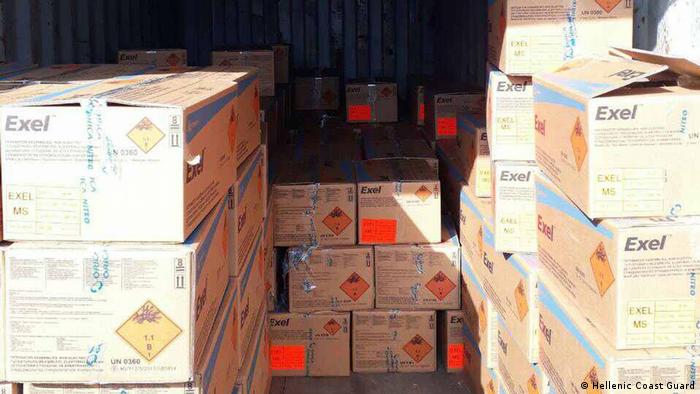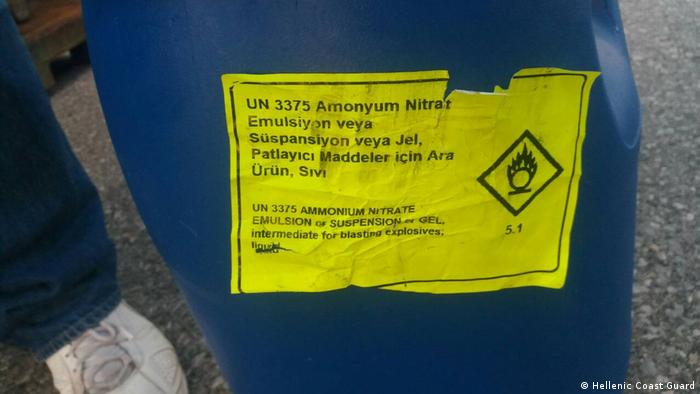türkçe links to original Turkish article
(HaberTürk Newspaper, 12 January 2018)
Looks harmless. What's all the fuss about?
The cargo ship "Andromeda" that was seized by the Greek Coast Guard
off Crete was carrying explosive material loaded onto the ship at the
Turkish Mediterranean ports of Mersin and İskenderun. Greek
authorities characterized the ship as a "Floating Bomb" and took the
ship's crew, comprised of 2 Ukrainians, an Indian and an Albanian,
into custody.

Supposedly, for use at New Year's celebrations in Addis Ababa.
According to the Turkish Ministry of Customs and Trade, which
confirmed that the ship was carrying dangerous material, the Andromeda
left Mersin on 23 November loaded with 29 containers of IMO
(International Maritime Dangerous Goods) material weighing
419, 360 kilograms. The original destination was Ethiopia but the
route was changed toward Libya.
In the Ministry's announcement it was stated that two Ankara firms
sent the material, which included "13 containers of explosive fuses,
ANFO (amonium nitrate fuel oil), Power Gel Magnum, cables; 16
containers of expolsive fuses, electric capsules, non-electric capsules,
Power Gel Magnum, amonium nitrate solution and ANFO." Prior
to arriving at Mersin, 3 static tanks, 3 tanker trailers and 5 tanker
trailers with static tanks loaded on them, had been put on the ship
at İskenderun, to be delivered to Yemen and Oman.

Gardens were to grow in Djibouti.
The Ministry insisted that since the intended destinations for the
dangerous cargo were Ethiopia and Djibouti there was no objection.
Had the Ministry known about the diversion to Libya, permission
would not have been granted, based on international prohibitions
against such shipments to Libya.
The Tanzania-flagged Andromeda is owned by the Greek shipping
company 'Coasters Maritime' and firm official Teodoros Rellos
stated that "in order to protect our rights we want the cargo to be
sequestered. When the ship reached the Suez Canal on 25 November
we determined that the Turkish firms had no intention of paying the
$75,000 canal-passage fee nor the $365,000 they owed to us. From
that day on, because of the ship's dangerous cargo, it was refused
permission to dock from all ports and began to wander in the
Mediterranean."
The crime scene.

Hiç yorum yok:
Yorum Gönder